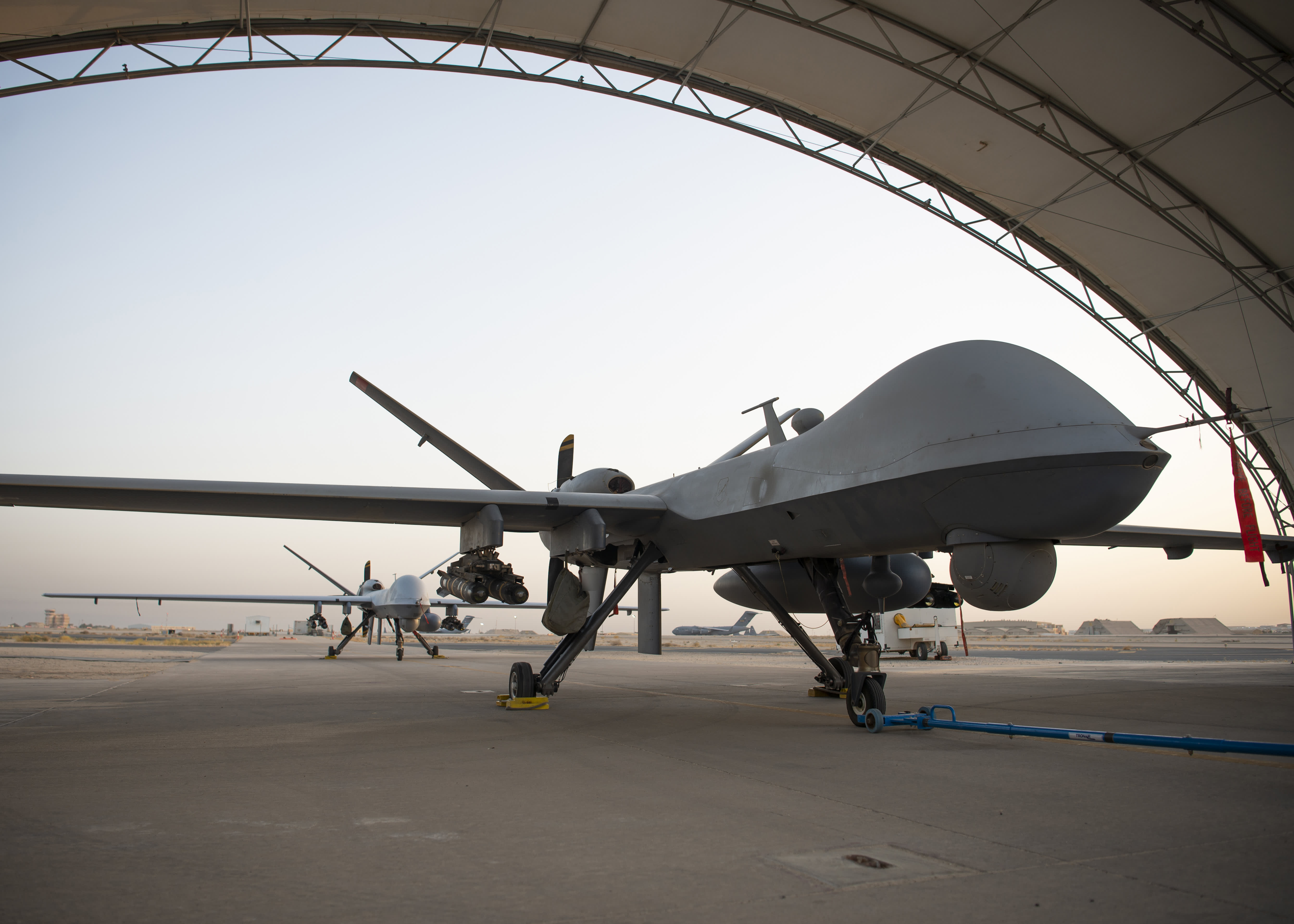A pair of MQ-9 Reapers from the 46th Expeditionary Attack Squadron are parked on the flightline at Ali Al Salem Air Base, Kuwait, June 9, 2020.
Senior Airman Isaiah J. Soliz | U.S. Air Force
WASHINGTON — President Donald Trump signed a measure this week that will allow U.S. defense contractors to sell more armed drones to foreign militaries, a State Department official said Friday.
The updated policy determination opens up the sale of armed U.S. drones to foreign governments that were previously forbidden from buying them under the Missile Technology Control Regime, or MTCR, which was signed three decades ago by 35 member nations.
The MTCR classifies large drones akin to cruise missiles, which makes sales of such weapons subject to high export restrictions. Under the updated policy, the U.S. no longer subjects drones that fly under 800 kilometers per hour — such as Reapers made by General Atomics and Global Hawks made by Northrop Grumman — to MTCR’s high bar.
Clarke Cooper, assistant secretary for political-military affairs at the Department of State, said the new policy will help U.S. allies and partners “meet their urgent national security and commercial requirements.”
The modified U.S. drone export policy is largely viewed as a Trump administration effort to sell more weapons overseas.
Cooper reiterated that sales of U.S. drones would still be held to a high bar, downplaying concerns that the sale of more drones would lead to human rights abuses.
“These are all case-by-case determinations based on not only what the partner requirement may be but also how that aligns with U.S. interest,” he said.
White House press secretary Kayleigh McEnany said that the MTCR was outdated, hurt the U.S. defense industry and “hindered deterrence capability abroad by handicapping our partners and allies with subpar technology.”
“Approving or denying [an unmanned aircraft system] sale to any country is a whole-of-government decision and takes into account our national security, nonproliferation, and foreign policy objectives, as well as the purchasing country’s ability to responsibly use and safeguard United States-origin technology,” McEnany said in a statement.
